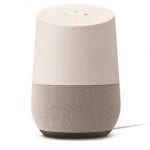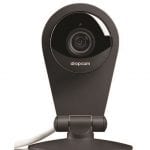Featuring info and tips from George Finney, OIT’s Chief Security Officer.
It’s the same internet that everyone else uses, but it’s getting filled up with more than computers. Smart devices like light bulbs, wearable fitness trackers, and kitchen appliances now fill the space once reserved for smartphones and laptops. These Internet of Things (IoT) devices are just as susceptible to hacking, and in some cases are more vulnerable.
Devices that support Amazon’s Alexa are a wonder of modern technology, but before taking the plunge, you should be prepared to spend some time thinking about how you will want to secure these devices.
Amazon echo
 With an unsecured Amazon Echo, hackers could possibly listen into your conversations and even make unauthorized purchases. Make sure to review the privacy settings within the Alexa app on your phone and disable automatic purchasing. You can also utilize the mute button on the device itself to disable the microphones when you don’t want to use them.
With an unsecured Amazon Echo, hackers could possibly listen into your conversations and even make unauthorized purchases. Make sure to review the privacy settings within the Alexa app on your phone and disable automatic purchasing. You can also utilize the mute button on the device itself to disable the microphones when you don’t want to use them.
Google home
 Similar to Amazon Echo, a hacker could gain access to calendars, e-mails, and documents within your Google account. Protect yourself by creating a strong password for your Google account, enabling two-factor authentication, and not leaving your Google Home device alone with strangers.
Similar to Amazon Echo, a hacker could gain access to calendars, e-mails, and documents within your Google account. Protect yourself by creating a strong password for your Google account, enabling two-factor authentication, and not leaving your Google Home device alone with strangers.
Nest thermostats
 If you have a Nest or other wi-fi enabled thermostat in your home, leaving it vulnerable can allow ne’er-do-wells to access your wi-fi and figure out when you’re not home based on the A/C schedule. Enabling two-factor authentication can help protect you. Disabling Bluetooth after the thermostat’s initial configuration also helps greatly as Bluetooth connections can make it much easier for a hacker to access the system.
If you have a Nest or other wi-fi enabled thermostat in your home, leaving it vulnerable can allow ne’er-do-wells to access your wi-fi and figure out when you’re not home based on the A/C schedule. Enabling two-factor authentication can help protect you. Disabling Bluetooth after the thermostat’s initial configuration also helps greatly as Bluetooth connections can make it much easier for a hacker to access the system.
Webcams
 Webcams are a great tool but can be very scary if someone were to gain access to it covertly. Someone could watch or destroy your recorded footage and possibly even watch live! They can also set passwords on web-accessible cameras, preventing you from accessing them yourself. The easiest way to protect web-accessible cameras is to change their default management password. Also, make sure to keep the camera’s software up to date. If all else fails, they can’t connect to it if it isn’t plugged in!
Webcams are a great tool but can be very scary if someone were to gain access to it covertly. Someone could watch or destroy your recorded footage and possibly even watch live! They can also set passwords on web-accessible cameras, preventing you from accessing them yourself. The easiest way to protect web-accessible cameras is to change their default management password. Also, make sure to keep the camera’s software up to date. If all else fails, they can’t connect to it if it isn’t plugged in!
Wi-Fi Routers
An unsecured wi-fi router means open season for your data. Nefarious folks can access your computers and files, and use your Internet connection for illegal purposes. If you have a wireless router in your home either from your phone company or one you purchased yourself, immediately access the administration page (see manual) and change the default administrator password. Most routers also allow you to restrict wi-fi usage only to certain devices.
Smart TVs
 Depending on the features of your Smart TV, hackers could access microphones, cameras, applications, and track your viewing habits all at once! Most Smart TVs have settings that allow you to beef up security and disable some smart features altogether.
Depending on the features of your Smart TV, hackers could access microphones, cameras, applications, and track your viewing habits all at once! Most Smart TVs have settings that allow you to beef up security and disable some smart features altogether.
Taking these simple steps can go a long way in securing your Internet of Things devices. The more of these devices that are released into the wild, the more vigilant we all must be to keep our data safe.


